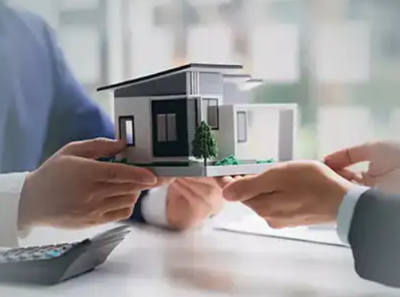
City rental markets are changing fast. New tech and shifting expectations are pushing smart access systems from a bonus feature to a basic requirement. In places like San Francisco, where small perks matter a lot, buildings without smart entry are falling behind. Tenants want more than just a place to sleep—they want tools that make life easier.
The growing interest in smart access reflects a broader change in how people evaluate their living spaces. Convenience now drives many housing decisions. To remain competitive, property managers must adapt to rising expectations. As smart entry climbs the list of renter priorities, it has become a deciding factor in lease agreements.
Smart Entry Features Are Becoming Standard
Urban renters are used to digital tools shaping daily routines. Smart access—like keyless entry or mobile-controlled locks—fits naturally into that lifestyle. Features such as remote entry allow residents to access their homes without touching a keypad or carrying a physical key, an expectation that has become common. Apartments lacking smart access are often overlooked during the search process.
Similar expectations apply to amenities outside the front door. Upgraded parking management in San Francisco can complement smart home features by offering mobile access, real-time availability, and seamless entry—reducing friction for both residents and property managers. For renters juggling flexible or short-term leases, smooth logistics matter. Meeting daily needs with well-integrated tech leads to greater satisfaction and stronger retention.
Delivery Volume Has Exposed Weak Spots in Building Access
With more deliveries than ever, old access systems are showing their limits. Traditional call boxes and key setups just don’t keep up. That can mean missed packages or tenants dealing with delays and confusion. In busy cities, easy delivery is now a daily need, and buildings that can’t keep up stick out in a bad way.
Staff also struggle with these outdated setups. When access must be managed manually, efficiency drops.
Residents get stuck handling issues alone, and when packages go missing or security slips, trust takes a hit. Smart delivery access improves this by making the process smoother and safer, helping people feel more at ease.
Guest Entry Is a Growing Priority
Today’s renters want their guests to be able to visit without hassle. People are asking for digital guest access that works through apps or codes—something they can control quickly. Some systems even allow residents to set temporary access windows, limiting entry to specific days or times. Old methods involving keys or calls to the front desk just don’t fit with modern schedules.
The demand reflects a desire for both comfort and safety. The ability to track guest entries adds peace of mind. Tenants value transparency and control. Without modern access features, properties risk poor reviews or losing potential renters who expect up-to-date solutions. Simple tech upgrades can enhance the guest experience and encourage longer stays.
Leasing Agents Are Losing Deals Over Access Incompatibility
Leasing agents are seeing this shift firsthand. More and more renters ask about smart delivery and access features during tours. Some even test mobile entry apps on-site to confirm compatibility with personal devices. The focus has expanded beyond layout or square footage—modern renters are prioritizing technology that simplifies daily routines.
If a building doesn’t offer this, vacancies can stretch longer. Today’s renters—especially professionals—value things like digital control and seamless access. Properties that match those values stand out. Installing smart systems can give leasing agents the tools to win over picky but qualified tenants.
Maintenance Operations Are Being Slowed by Outdated Lock Systems
Old locks aren’t just a pain for renters—they waste time for maintenance staff too. Looking for physical keys throws off repair schedules and makes the whole process less efficient. Some buildings still store spare keys in centralized lockboxes or on-site offices, requiring staff to walk across large properties just to retrieve them. That can mean delays, higher costs, and unhappy tenants who feel overlooked.
In emergencies, things can get worse. When quick access is needed but the system holds things up, problems escalate. Property managers may even be held responsible if a delay causes harm. In some cases, emergency responders are forced to wait outside while staff scramble for keys, wasting precious minutes. Updating to smart lock systems means faster fixes, better safety, and smoother operations overall.
Renters today want more than just a place to live—they want easy, modern access. Keyless entry, app-controlled guest access, and smooth package deliveries are no longer extras—they’re expected. Buildings that don’t keep up feel outdated fast, especially in busy cities where convenience matters most. Old systems waste time, create frustration, and hurt trust. Smart access makes things simpler for everyone, from tenants to maintenance teams. If a building doesn’t offer it, renters often move on. To stay competitive, property managers should listen to tenant needs and upgrade entry tech. A few smart changes can go a long way in closing leases.



(0) comments
We welcome your comments
Log In
Post a comment as Guest
Keep it Clean. Please avoid obscene, vulgar, lewd, racist or sexually-oriented language.
PLEASE TURN OFF YOUR CAPS LOCK.
Don't Threaten. Threats of harming another person will not be tolerated.
Be Truthful. Don't knowingly lie about anyone or anything.
Be Nice. No racism, sexism or any sort of -ism that is degrading to another person.
Be Proactive. Use the 'Report' link on each comment to let us know of abusive posts.
Share with Us. We'd love to hear eyewitness accounts, the history behind an article.